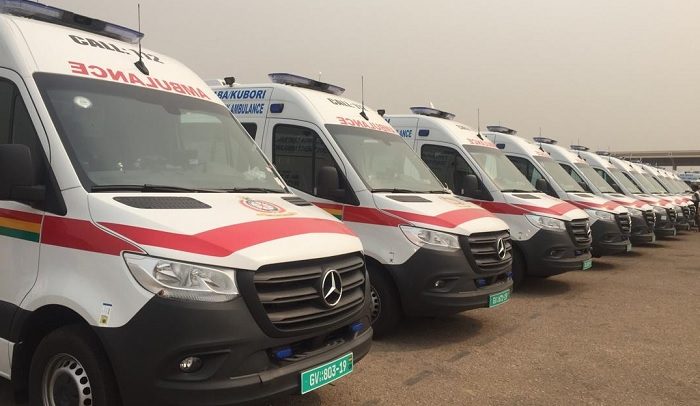The government is procuring additional 112 ambulances to augment the current fleet after it procured and distributed 307 ambulances across the country early this year.
The Minister of Finance, Ken Ofori-Atta, said the Deutsche Bank AG had agreed to provide the needed funding to undertake the project which will cost €18.815 million under a buyer credit facility agreement between the government and the Deutsche Bank AG, Frankfurt am Main.
Members of Parliament (MPs) yesterday gave their backing to the agreement to finance the supply of 112 ambulances, which is made up of 20 Mercedes Benz Sprinter VS 30 Intensive Care Ambulances and 92 Mercedes Benz Sprinter VS 30 Basic Life Support Ambulances.
The ambulances were for the National Ambulance Service to support the country’s health system to function effectively at all levels, the government said.
Loan terms
A total of €16,895,232.40 would be used to finance 85% of the commercial contract and €1,919,767.60 was for the Euler Hermes premium, the Chairman of the Finance Committee, Dr. Mark Assibey-Yeboah noted.
According to him, the loan has a tenor of 8.5 years, grace period of 1.5 years, seven-year repayment period, CIRR + 0.65% per annum interest rate, 0.60% per annum commitment fee, 1.25% flat of the facility amount upfront fee and 8.11% flat (financed upfront through the credit facility) ECA premium.
Observations
The committee was informed that the country needed in excess of 1,000 ambulances to be able to provide pre-hospital care and handle inter-facility transfer.
This is why the government, through the Ministry of Special Initiatives, procured and distributed a total of 307 ambulances to augment the existing fleet of 50 ambulances.
It is in line with this commitment that the government is procuring additional 112 ambulances for the NAS. The vehicles would be supplied by Carl Friederichs GmbH of Germany to support the country’s emergency healthcare systems.
Project Benefits
Dr. Assibey-Yeboah said the committee observed that the procurement of the additional 112 ambulances would help to improve emergency healthcare delivery, improve the country’s emergency response, reduce morbidity of patients with emergency conditions, provide immediate and effective life-saving care in a safe and clinical working environment, and improve health care generally.
Background
Government was implementing the effective Emergency Medical Service (EMS) to help improve the country’s emergency response capabilities. To achieve this, the government was pursuing innovative and efficient ways in the provision and management of health facilities and infrastructure in the country, the Finance Minister said.
“The policy thrust of government is therefore to use an appropriate mix of public policy and public private investments to deliver quality, affordable health infrastructure and facilities to meet the healthcare service needs of the people,” according to the Ministry of Health.
By Ernest Kofi Adu, Parliament House


